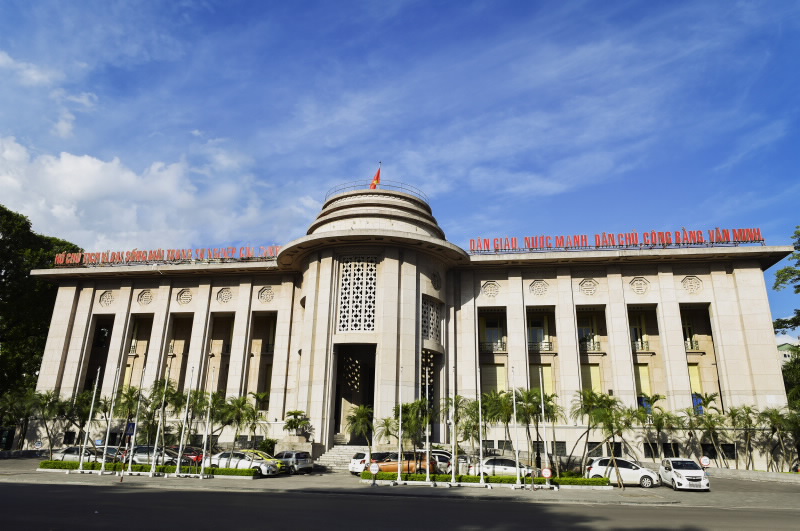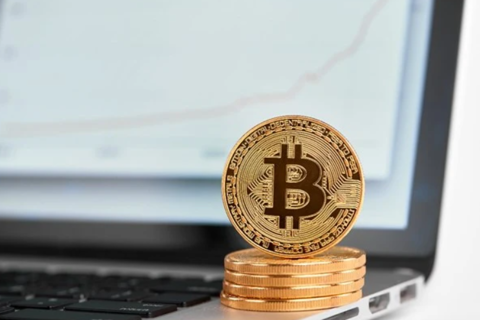Vietnam to address US concern on fear of being labelled as currency manipulator
Vietnam would continue to pursue a flexible monetary policy and affirms it has no intention of seeking unfair trade gains.
The State Bank of Vietnam (SBV), the country’s central bank, would continue to work with other government agencies to address concern of the US Department of Treasury after the department kept Vietnam in the monitoring list for currency manipulation, stated the SBV in a statement.
| The State Bank of Vietnam. |
The SBV would continue to manage the monetary policy in a flexible manner, aiming to contain inflation and stabilize macro-economic conditions, while reiterating its stance of not seeking unfair trade gains.
The statement was made after the US Department of Treasury on January 14 released a report titled “Macroeconomic and Foreign Exchange Policies of Major Trading Partners of the US”, in which it included Vietnam in the monitoring list of major trading partners “that merit close attention to their currency practices and macroeconomic policies.”
In addition to Vietnam, the list comprises of China, Japan, South Korea, Germany, Italy, Ireland, Singapore, Malaysia and Switzerland.
According to the US agency, an economy that meets two of the three criteria in the Trade Facilitation and Trade enforcement Act of 2015, or the 2015 Act, is placed on the monitoring list.
The three criteria include (1) a significant bilateral trade surplus with the United States is one that is at least US$20 billion over a 12-month period; (2) a material current account surplus is one that is at least 2% of gross domestic product (GDP) over a 12-month period; and (3) persistent, one-sided intervention occurs when net purchases of foreign currency are conducted repeatedly, in at least six out of 12 months, and these net purchases total at least 2% of an economy’s GDP over a 12-month period.
Once included into the monitoring list, an economy will remain there for at least two consecutive reports to help ensure that any improvement in performance versus the criteria is durable and is not due to temporary factors.
“As a further measure, the US government will add and retain on the Monitoring List any major trading partner that accounts for a large and disproportionate share of the overall US trade deficit even if that economy has not met two of the three criteria from the 2015 Act,” the US Treasury Department stressed.
In case of Vietnam, the Treasury Department suggested the country’s goods trade surplus with the US continues to rise significantly, reaching US$47 billion over the four quarters through June 2019. In this same period, Vietnam’s current account balance steadily narrowed, to 1.7% of GDP, as rising outbound income payments have increasingly offset the still-large goods trade surplus.
However, “Vietnam intervenes in foreign exchange markets frequently, and in both directions, to maintain a close link to the dollar,” said the report.
It added the Vietnamese authorities have credibly conveyed to Treasury that net purchases of foreign exchange were 0.8% of GDP over the four quarters through June 2019. These purchases came in a context in which reserves remained below standard adequacy metrics and there was a reasonable rationale for rebuilding reserves. Further, while purchases of foreign exchange outweighed sales over the course of these four quarters, the SBV intervened in both directions, with foreign exchange sales used to resist downward pressure on the Vietnamese dong in the second half of 2018.
The Treasury Deparment said as Vietnam strengthens its monetary policy framework, and reserves reach adequate levels, Vietnam should reduce its intervention and allow for movements in the exchange rate that reflect economic fundamentals, including gradual appreciation of the real effective exchange rate. Vietnam should also increase the transparency of foreign exchange intervention and reserve holdings, the report concluded.
Vietnamese officials have several times affirmed that the country does not seek to manipulate its currency. At a meeting on January 2, SBV Governor Le Minh Hung said one of Vietnam’s priorities in 2020 is to prove to its major trading partners that the country does not manipulate the domestic currency for unfair trade advantages.












